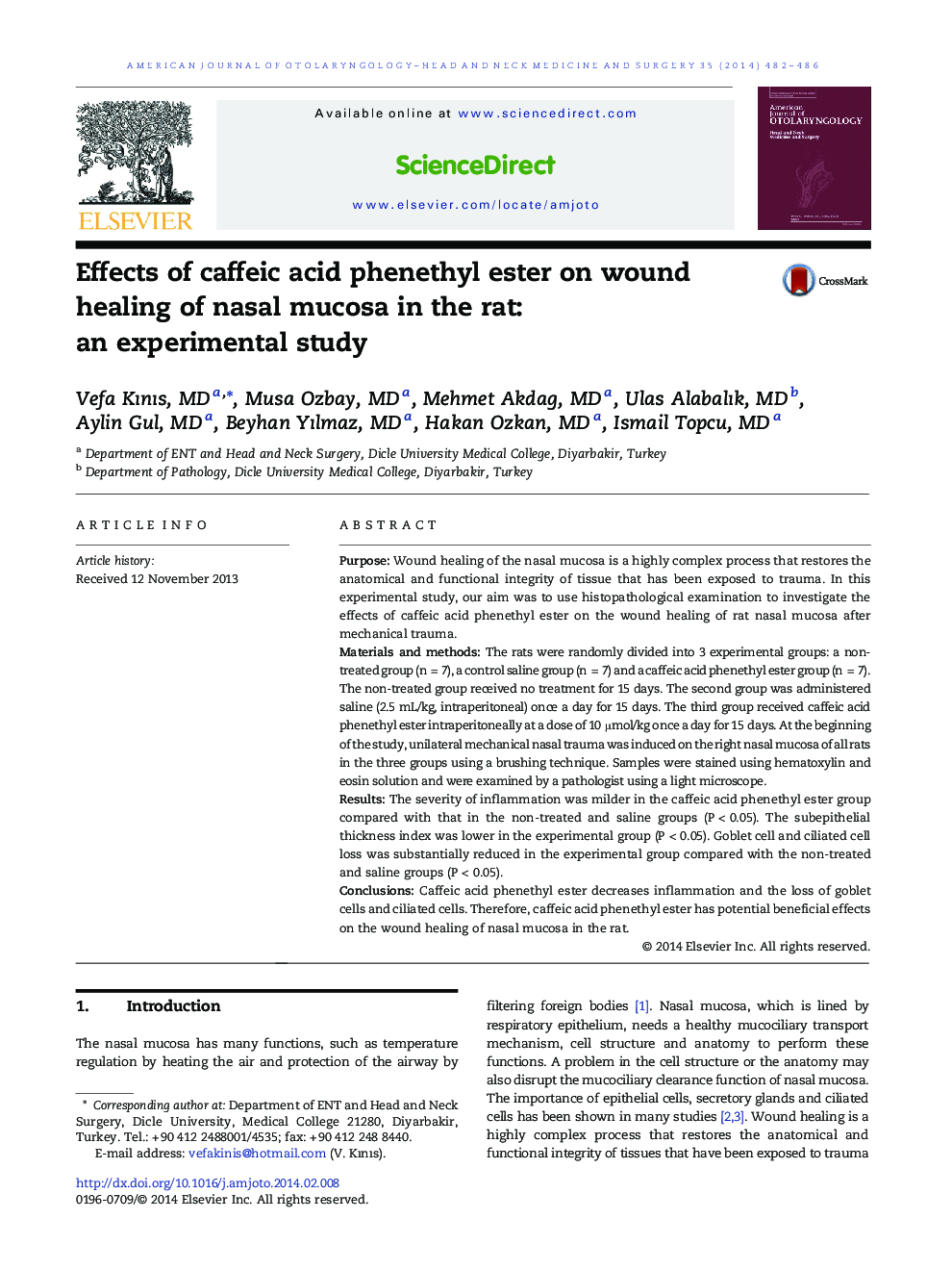| Article ID | Journal | Published Year | Pages | File Type |
|---|---|---|---|---|
| 4103084 | American Journal of Otolaryngology | 2014 | 5 Pages |
PurposeWound healing of the nasal mucosa is a highly complex process that restores the anatomical and functional integrity of tissue that has been exposed to trauma. In this experimental study, our aim was to use histopathological examination to investigate the effects of caffeic acid phenethyl ester on the wound healing of rat nasal mucosa after mechanical trauma.Materials and methodsThe rats were randomly divided into 3 experimental groups: a non-treated group (n = 7), a control saline group (n = 7) and a caffeic acid phenethyl ester group (n = 7). The non-treated group received no treatment for 15 days. The second group was administered saline (2.5 mL/kg, intraperitoneal) once a day for 15 days. The third group received caffeic acid phenethyl ester intraperitoneally at a dose of 10 μmol/kg once a day for 15 days. At the beginning of the study, unilateral mechanical nasal trauma was induced on the right nasal mucosa of all rats in the three groups using a brushing technique. Samples were stained using hematoxylin and eosin solution and were examined by a pathologist using a light microscope.ResultsThe severity of inflammation was milder in the caffeic acid phenethyl ester group compared with that in the non-treated and saline groups (P < 0.05). The subepithelial thickness index was lower in the experimental group (P < 0.05). Goblet cell and ciliated cell loss was substantially reduced in the experimental group compared with the non-treated and saline groups (P < 0.05).ConclusionsCaffeic acid phenethyl ester decreases inflammation and the loss of goblet cells and ciliated cells. Therefore, caffeic acid phenethyl ester has potential beneficial effects on the wound healing of nasal mucosa in the rat.
